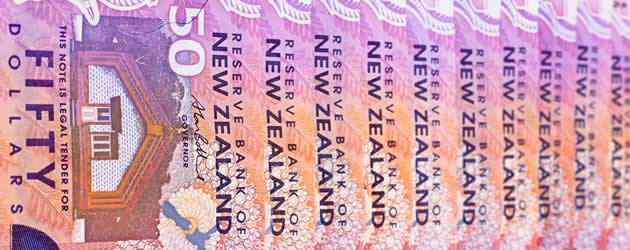
The Pound to New Zealand Dollar exchange rate (GBP/NZD) declined by over a cent last night to 1.9777 as traders reacted to a hawkish monetary policy statement from the Reserve Bank of New Zealand.
The RBNZ maintained its current benchmark interest rate of 2.50% in December, which was widely expected beforehand. However, sentiment towards the ‘Kiwi’ skyrocketed as Governor Graeme Wheeler commented that he expects the interest rate to be hiked by around 2.25% over the next two years:
“We want to send a message that we are serious about policy objectives. Our forecasts suggest that the cash rate will need to increase by around 2.25% over the next two-and-a-quarter years”.
The hawkish remarks boosted the appeal of the New Zealand Dollar as investors digested the possibility of a significantly higher rate of 4.75% in New Zealand by the end of 2015.
The RBNZ mentioned that the domestic economy grew at an annualised rate of 3.0% in September and commented that strong migration gains were stoking housing market developments and private consumption trends in New Zealand’s largest and third largest cities, Auckland and Christchurch respectively:
“The expansion in the economy has considerable momentum, New Zealand’s terms of trade are at a 40-year high, household spending is rising and construction activity is being lifted by the Canterbury rebuild and the response to the housing shortage in Auckland”.
In response to the positive Central Bank statement, the ‘Kiwi’ Dollar also registered a 0.4 cent gain against the US Dollar (USD/NZD), a 0.7 cent gain against the Japanese Yen (NZD/JPY), a 1.0 cent gain against the Australian Dollar (AUD/NZD), a 0.8 cent gain against the Euro (EUR/NZD) and a 0.6 cent gain against the Canadian Dollar (CAD/NZD).
It was also reported late last night that the Australian Unemployment Rate rose 0.1% to 5.8% in November, which helped the Pound strengthen against the ‘Aussie’. Despite a better-than-expected Employment Change result of 21,000 the headline barometer of the Australian labour market softened and this hurt demand for the Australian Dollar.
GBP/AUD was also spurred on by investor fears that a recent decision from American car giant General Motors to cease producing cars in Australia from 2017 onwards could send the Antipodean economy spiraling towards recession due to large-scale job losses.
Sterling was supported by a report from the British Chamber of Commerce (BCC) forecasting that the UK economy will reach a 7-year high annualised GDP score of 2.7% next year. Strong growth of this nature would finally bring Britain back above its pre-crisis peak.

Comments are closed.